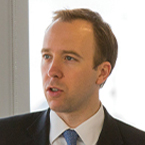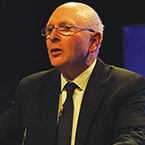News review – February 2020
This will, of course, affect the NHS – with the UK officially leaving the European Union on 31 January under the deal brokered by the prime minister before the election. NHS staff from European Economic Area countries (except the Republic of Ireland), resident before the end of the year, will have to apply for settled or pre-settled status. Those coming in after 1 January 2021 will need the obtain an NHS visa, which will be introduced as part of the government’s promised Australian-style immigration system. The smooth operation of both systems will be vital as the NHS gears up recruitment.
 NHS revenue funding will remain as planned, and will be enshrined in law. Published in January, the NHS long-term plan funding bill commits the government to spending an extra £33.9bn a year in cash terms by 2024. The legislation includes a legal duty on the Treasury and the health and social care secretary to provide this minimum level of revenue funding. While health and social care secretary Matt Hancock said the move would give the NHS certainty over funding.
NHS revenue funding will remain as planned, and will be enshrined in law. Published in January, the NHS long-term plan funding bill commits the government to spending an extra £33.9bn a year in cash terms by 2024. The legislation includes a legal duty on the Treasury and the health and social care secretary to provide this minimum level of revenue funding. While health and social care secretary Matt Hancock said the move would give the NHS certainty over funding.
 The NHS was at the heart of the government’s first Queen’s speech, which set out the measures above. It said draft legislation will be produced to accelerate the NHS long-term plan, while the government also plans to seek cross-party consensus on proposals for long-term reform of social care. To fulfil a manifesto promise, hospital car parking charges will also be removed for those in greatest need from April. Mr Hancock said people with disabilities, frequent outpatient attendees, parents of children staying overnight in hospital and staff working night shifts would be exempt from the charges. As well as looking at capacity and the potential use of technology, the Department added that it would assess where capital investment could be used to help improve the experience of patients and visitors.
The NHS was at the heart of the government’s first Queen’s speech, which set out the measures above. It said draft legislation will be produced to accelerate the NHS long-term plan, while the government also plans to seek cross-party consensus on proposals for long-term reform of social care. To fulfil a manifesto promise, hospital car parking charges will also be removed for those in greatest need from April. Mr Hancock said people with disabilities, frequent outpatient attendees, parents of children staying overnight in hospital and staff working night shifts would be exempt from the charges. As well as looking at capacity and the potential use of technology, the Department added that it would assess where capital investment could be used to help improve the experience of patients and visitors.
Another manifesto promise – restoring nursing bursaries – was also addressed. The Department of Health and Social Care said that all nursing students on courses from September this year will receive a non-repayable payment of at least £5,000 a year. Additional payments of up to £3,000 will be available for students in regions or specialisms struggling to recruit or to help students cover childcare costs. The move is expected to benefit more than 35,000 students a year and is part of the government’s manifesto commitment to increase nurse numbers by 50,000 by 2025.
While much of the government’s priorities will be welcomed, those involved in health and social care services will also be looking to the delayed spending review for long-term capital, education and public health allocations. The NHS Confederation said that the government should set a realistic budget in the 2020 spending review to restore investment in training clinicians and improve recruitment and retention. Setting out NHS priorities for the government to focus on, the representative body also called for the pension tapering issue to be addressed (see news, page 5). The financial impact on clinicians has led to doctors turning down additional shifts and responsibilities, exacerbating staffing difficulties. And it called for the creation of an emergency capital infrastructure fund and increased funding for social care.
 One measure not included in the manifesto was also unveiled. The Department said it would allocate £40m to reduce the time staff spend logging into work computer systems. The funding will allow the service to work with suppliers to standardise logins or provide multi-factor logins, such as fingerprint access. Some staff have up to 15 log-ins, the Department said, and had to remember multiple passwords or use the same password, which could compromise security. Trusts will seek to ensure staff have the appropriate access permissions, while there will be a focus on integrating local and national systems. A further £4.5m will be given to local authorities to develop digital adult social care projects – these will help the most vulnerable live independently for longer, as well as improve information sharing between health and social care.
One measure not included in the manifesto was also unveiled. The Department said it would allocate £40m to reduce the time staff spend logging into work computer systems. The funding will allow the service to work with suppliers to standardise logins or provide multi-factor logins, such as fingerprint access. Some staff have up to 15 log-ins, the Department said, and had to remember multiple passwords or use the same password, which could compromise security. Trusts will seek to ensure staff have the appropriate access permissions, while there will be a focus on integrating local and national systems. A further £4.5m will be given to local authorities to develop digital adult social care projects – these will help the most vulnerable live independently for longer, as well as improve information sharing between health and social care.
Away from Westminster, the Welsh government said that its integrated care fund (ICF) programme had supported a wide range of new and innovative ways of working that have the potential to influence future patterns of care and support. The ICF’s 2018/19 annual report said that it had allocated revenue funding of £59m and £30m of capital funding. Since its establishment in 2014/15 as a means of keeping older people independent and out of hospital or residential care, the fund has grown and some of the new delivery models have been implemented on a larger scale, it said.
Though the winter has been relatively mild so far, there have been outbreaks of flu and norovirus, which have hampered NHS performance. NHS England reported that demand on health systems grew in December. Just 79.8% of A&E patients were admitted, transferred or discharged within four hours, with A&E attendances up 4.8% in the 12 months to December. In November, elective care increased by 2.9% compared with 12 months earlier. The waiting list had increased by 6% compared with November 2018. In Wales, health minister Vaughan Gething said there was pressure across the whole health and care system and, though some operations were being postponed, they were not being cancelled. Significant numbers continued to access the care they need. The Scottish government provided a further £3.4m to support the NHS as it faces winter pressures. The funding will be drawn from the £815m set aside for the waiting times improvement plan. Winter pressure funding has now reached £13.4m (it was £10m last winter).
Finally, the new year’s honours saw awards for many people associated with the NHS. Kevin Parkinson, who was previously chief finance officer and governance director at Morecambe Bay Clinical Commissioning Group, was awarded an MBE for services to the NHS in Lancashire and South Cumbria. David Williams, director general, finance, and chief operating officer at the Department, received an OBE for services to government finances. Nuffield Trust chair Andy McKeon and CIPFA chief executive Rob Whiteman were awarded CBEs for services to healthcare and to public sector financial management, respectively.
From the HFMA
It feels like the purpose of the proposed 2020/21 tariff is to support transition, according to Andrew Monahan, HFMA policy and research manager. In a blog on the association’s website, he says the consultation on the 2020/21 tariff aims to strike a balance between helping systems introduce new care models and putting too great a burden on providers and commissioners. The extension of blended payments to outpatients fits with the long-term plan ambition to reduce outpatient appointments by a third, but the inclusion of some specialised services outpatients came as a surprise.
Finance staff will have to adapt as the system transforms, and the profession is beginning to map out its future, says Healthcare Finance editor Steve Brown. His blog wrapping up events at the HFMA annual conference said debate about the future shape of the finance function – and the skills required – was held against the backdrop of the report, Designing our future: better decisions, better health. A panel discussion looked at a range of topics, including the impact of technology, finance’s role in carbon reduction, greater system working and meeting the needs of younger finance professionals.
 Bermuda Hospitals Board chief financial officer Bill Shields – a former NHS finance director – continues his blog series on working on the islands. In his latest blog, he reflects on returning to the UK for the HFMA annual conference and the impact of Brexit on both the NHS and Bermuda.
Bermuda Hospitals Board chief financial officer Bill Shields – a former NHS finance director – continues his blog series on working on the islands. In his latest blog, he reflects on returning to the UK for the HFMA annual conference and the impact of Brexit on both the NHS and Bermuda.
QUOTES
‘This funding bill will empower the NHS and its world-class clinicians to deliver our bold plan for the NHS. They can do so safe in the knowledge that this government is giving them the financial certainty and support to revolutionise prevention, detection and treatment.’
Health secretary Matt Hancock says the NHS long-term plan funding bill demonstrates the government’s ‘iron-clad’ commitment to the health service
‘Andy’s deep knowledge of and commitment to the health service, deriving from many years of public service, is unparalleled. We continually benefit from his insights and wise counsel and I am very pleased to see his contribution recognised.’
Nuffield Trust chief executive Nigel Edwards pays tribute to Andy McKeon, who was appointed a CBE in the new year’s honours
 ‘We have seen a worrying increase in the delays for patients between the decision to admit and admission – more than eight times as many patients waited over 12 hours this December compared with December last year.’
‘We have seen a worrying increase in the delays for patients between the decision to admit and admission – more than eight times as many patients waited over 12 hours this December compared with December last year.’
Miriam Deakin (pictured), NHS Providers director of policy and strategy, says frontline staff are working flat out to meet winter pressures
 ‘We have more than 100,000 vacancies, the NHS needs significant investment in buildings, equipment and IT, and everywhere it is struggling to meet waiting times. Our members have warned this could be the worst winter on record.’
‘We have more than 100,000 vacancies, the NHS needs significant investment in buildings, equipment and IT, and everywhere it is struggling to meet waiting times. Our members have warned this could be the worst winter on record.’
NHS Confederation chief executive Niall Dickson (pictured) sets out the scale of the challenge facing the government
Related content
We are excited to bring you a fun packed Eastern Branch Conference in 2025 over three days.
This event is for those that will benefit from an overview of costing in the NHS or those new to costing and will cover why we cost and the processes.